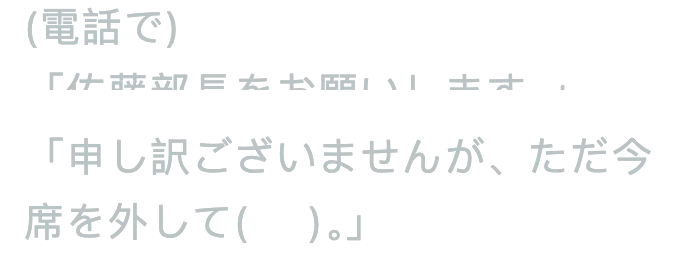41-0054 

41-0054 

- (ON PHONE)
- I'm looking for Minister Sato.
- I'm sorry, he's not in right now.
- ております: A self-effacing expression of "ています", indicating a respectful expression of continuity in the state of oneself or one's own party.
- ございます: A solemn expression of "あります".
- いらっしゃいます:"Iる", "来る", and "行く "are honorific expressions.
- Mairimasu: A self-effacing expression for "行く" and "来る".
42-0055 

42-0055 

- I'm asking a little too much, but if I could hear back by tomorrow then I'd appreciate it.
- Sujiru: It is a self-effacing expression of "思う", and together with "ありがたい", it forms "ありがたく存じる", which expresses the feeling of being worthy of celebration and feeling immense gratitude.
- 幸せでございます:很幸福
- I'm sorry that I'm not able to save the money.
- ありがとうございます:Thank you!
43-0067 

43-0067 

- Received treats from a client.
- Itadaku: It is a self-effacing expression of "もらう" to indicate that you have received items from your elders or superiors.
44-0068 

44-0068 

- The principal teacher sat down in her chair.
- お + verb ます form (drop ます) + になる: an expression form of honorifics that indicates the action behavior of the other person.
45-0069 

45-0069 

- Had bread for breakfast.
- Tingyin: A polite expression distinguished from the simplified "だ", commonly found in "です", "ます", and "ございます".










